In the fall of 1962, George Maharis left route 66 after two-and-one-half seasons of playing a major part in the creation of some of the best television of the decade, and arguably of all time. Earlier that same year he contracted hepatitis and spent a month in the hospital as co-star Martin Milner continued filming solo episodes to finish out the second season.
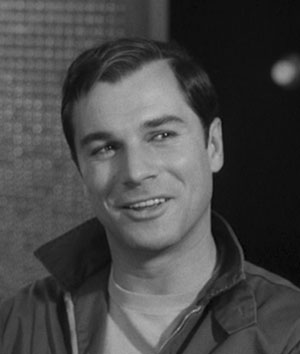
George Maharis
Maharis returned to route 66 for the start of the third season and almost immediately his relationship with everyone involved in the production of the show, not the least of which was executive producer Herbert B. Leonard, began to deteriorate. At the same time he alluded in interviews to incompatibility issues with Milner.
Ohio66 takes an in-depth look at the circumstances surrounding Maharis’ departure with extensive documentation that has never before been presented to this extent. The documents include original correspondence between Bert Leonard and Maharis, agents, lawyers, accountants, television executives and others.
In addition, we have obtained the complete court records for Lancer v. Maharis, Leonard’s legal action attempting to prevent Maharis from working in any capacity for the entertainment industry as long as he was still under contract to Lancer Productions. These court papers include medical reports, testimony from CBS and Screen Gems executives, and numerous internal CBS documents concerning the fate of route 66.
Finally, we have interviews with several of the key players in the route 66 drama, including extensive new comments by Maharis himself in light of all the new background information that has been uncovered:
“It started, and I guess I should have got a clue, when they hired Marty Milner and gave him top billing and never said a word to me. And then, when I was in the hospital, nobody communicated with me...”
“And [it] was in the contract that if they found somebody that had more prominence [than me] then he would get first-star billing, and I remember that being in the contract—that was okay with me at that point. But when they told me Marty Milner, I didn't know who he was—I had never heard of him...”
“Bert knew it, and I subconsciously knew it, and all that Alan Courtney was trying to do, for James Aubrey, was figure out where the situation was and what my wishes were — because Aubrey wanted me out of the series — I didn’t know that, but he did...”
We look at the influence Maharis’ personal agent, Mimi Weber, exerted on his career through her own correspondence and interviews with Maharis and Weber's son who witnessed all of these events first-hand:
“She interjected herself between myself, and Screen Gems, and Bert Leonard and gave no access to any of those people to me. I learned that from all the correspondence... that there was, what shall I say? over-protecting the client. That was Mimi!...” — George Maharis
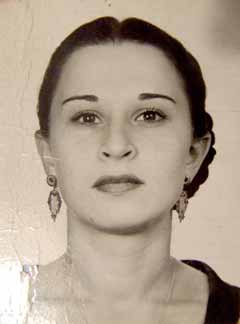
Mimi Weber
“[My stepfather] had NO chance to dictate anything to my mother. From the time she was old enough to stand she would stamp her foot to refuse or demand and MIMI ALWAYS GOT HER WAY. Possibly in the first year of the marriage my mother tried to placate him but after that it was a war of wills in which Mimi ALWAYS won...” — Mimi Weber's son, Neil
“Well, she was hard to deal with. I don’t know how much she knew about the business at the time — she could be quite unrealistic at times...” — Gene Yusem, Maharis’ William Morris agent
“Mimi got very involved [with my work] because she got very involved with me emotionally, and that was one of the reasons we ended up parting company because she started threatening people in my name. I said, ‘You can’t do that — I’m not your husband’ ...” — George Maharis
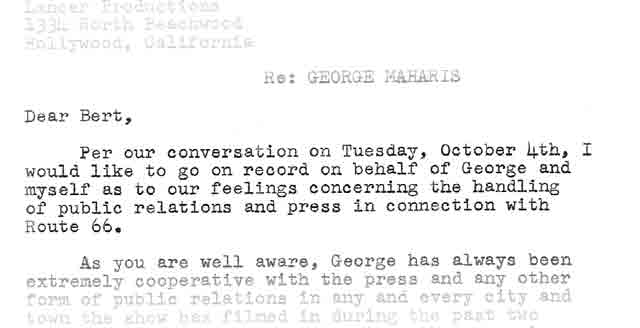
Exclusive interviews with route 66 production manager Sam Manners and director James Sheldon (The Mud Nest, Hey Moth, Come Eat The Flame, Fifty Miles From Home, ...):
“[George] got into an argument with Marty and cut himself out...” — Sam Manners
“Sam was always very loyal to Bert, and I understand what he is saying, but it was not over... I didn’t leave over any fight with Marty...” — George Maharis
“Maybe [Sam] didn’t want to admit that George wanted to quit the show because it was Mimi Weber, his agent, who f%*!$d up his career...” — James Sheldon
Personal and business communictions of route 66 executive producer Herbert B. Leonard:
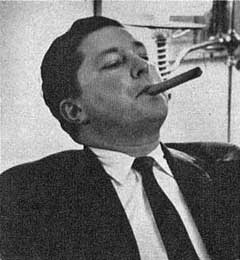
Herbert B. Leonard
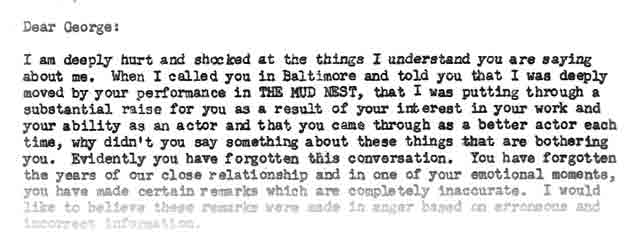
Medical reports and correspondence with physicians:
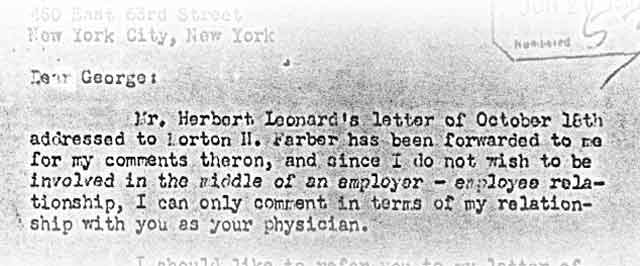
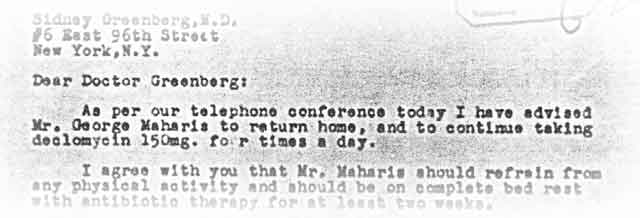

Lancer v. Maharis affidavits:
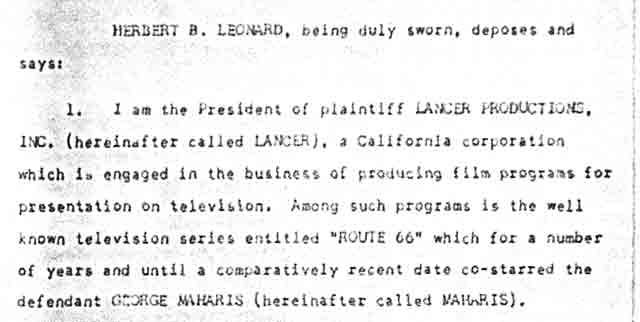
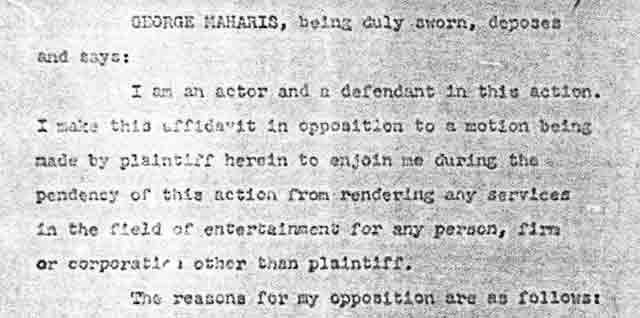
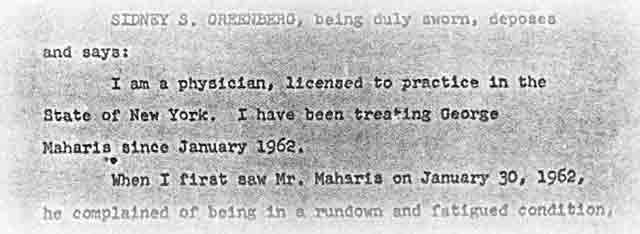
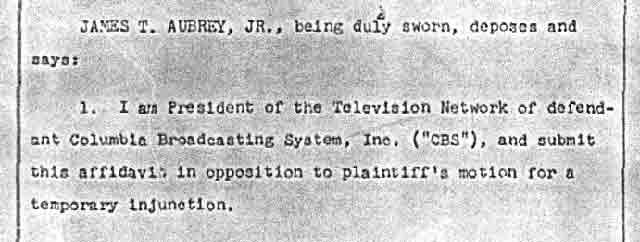
The full story... and more... coming soon on ohio66.com.
Sample chapter:
Unlike his previous illnesses, which to Maharis and Weber were cause for concern even though he kept up the grueling filming and travel schedule, hepatitis was a serious threat and the medical advice was clear: hospitalization under a doctor’s care was essential or he would risk serious injury due to the complications of neglect and improper treatment. Even Bert Leonard understood this now. He called Mimi Weber in New York and assured her that Maharis was under the constant care of doctors and nurses and that everything that could possibly be done was being done.
Leonard then turned his attention to the interruption in the route 66 production schedule which was at the time nearing the end of the second season. In addition to the budget and scheduling matters which would be seriously affected, there was also matter of scripts which were in various stages of completion and which were intended to feature both Tod and Buz.
As of March 23, 1962, Leonard’s interim schedule to finish out the second season after filming wrapped on Catalina Island April 1 was the following:
April 2-7: A Feat of Strength.
April 9-14: An Original by Stirling Silliphant.
April 16-21: Journey to Nineveh.
April 23-28: No Fourth Commandment (eventually renamed A Gift for a Warrior).
April 30-May 5: An Original by Stirling Silliphant.
May 7-May 12: An Original by Howard Rodman or Mort Thaw.
May 14-May19: The Tiger Learns Fear.
May 21-May26: Undecided.
The writers assigned to The Tiger Learns Fear were Borden and Frank Chase so this was probably the working title for the episode that eventually became known as Ever Ride The Waves In Oklahoma?. Mort Thaw was not given any route 66 writing credits after this date but it is likely that the episode planned for May 7 was Howard Rodman’s Welcome to the Wedding which was originally intended to be shot in Portland, Oregon instead of Cleveland where it ended up later in the third season.
“An Original by Stirling Silliphant” with no further explanation was a common entry in Leonard’s schedule so it is a pointless exercise to speculate on the identity of these episodes (even though we will do so later!) .
Of these eight episodes planned, six were required to finish the commitment to the second season and two more which would be considered reserve episodes for the third season. One of the first things that Leonard accomplished was to have the second season’s commitment to CBS and Screen Gems for thirty two episodes reduced to only thirty which meant that there would be only six episodes remaining to be filmed rather than eight and apparently Leonard was ready to delay the two third-season episodes until Maharis’ eventual return. On April 4, 1962 Leonard wrote to Maharis at St. John’s and explained:
“We will do four shows without you, but we will refer to you as being in the hospital with a broken hip from too much night action (obviously I am referring to the twist). Marty will talk to you on the phone in monologue fashion, but you will not actually appear on screen.”
Leonard then released a revised schedule announcing the four second-season episodes he planned to shoot without Maharis:
April 6-12 Between Hello and Goodbye
April 13-19 A Feat of Strength
April 20-26 Journey to Nineveh
April 27-May 3 From An Enchantress Fleeing
In the following days the schedule was revised slightly several times. Most notably, Journey to Nineveh was delayed and replaced with Hell Is Empty, All The Devils Are Here (probably one of those scripts noted in the earlier schedule as “An Original by Stirling Silliphant”).
Since Dr. Kositchek had suggested that Maharis remain hospitalized for at least three weeks, Leonard’s plan was for him to take one of his five week vacation periods after he was released (last week of April and all of May) and then return sometime around June 4 to film the two reserve episodes for the third season. Leonard explained this to Maharis in the letter and then added:
“For what it’s worth, I have heard from many doctors that rest and clean wholesome living are the only real cures for hepatitis.”
Leonard agreed to pay all expenses not covered by Maharis’ insurance and closed with:
“When you get out of the hospital, we’ll get you a ticket for New York or wherever and you can go sit in the sun... If you have any questions, or if there is anything that you need from me, please call me, or if I’m not available call Barbara, and we’ll do anything you want done, or get you anything you need. The main thing for you to do is rest and get well.”
As it turned out, at the request of the doctors Maharis stayed a week longer in the hospital than initially planned and he was not released until May 2, 1962. At that time he was under routine suspension from his contract due to illness and it was clearly Leonard’s intent that Maharis would now take one of his five-week vacation periods before returning to work in early June.
Gene Yusem, Maharis’ agent at William Morris, had been sent copies of most of the correspondence related to the hospital stay—as had Mimi Weber—and both of them were concerned about Leonard’s unilateral interpretation of the terms of Maharis’ contract with Lancer Productions in regards to illness and vacation. In his letter of April 4, Leonard wrote “For all intents and purposes, you will go on vacation and we will not call upon your services until June 4.” It was clear that Leonard was attempting to minimize his losses by disposing of at least some of the vacation time owed Maharis.
Weber asked her attorney, Mort Farber, for a legal opinion which was provided on April 11. Farber took issue with Leonard’s plan and noted that the contract called for distinct periods of vacation and suspension for disability due to illness. Yusem then officially wrote to Leonard with his objections. The dispute centered around whether Maharis would still be considered ill and under suspension after his release from the hospital—or whether he would be ready to return to work in which case the suspension would be lifted and vacation would be appropriate for the time off that was planned.
The circumstances seemed to favor Maharis as Dr. Kositchek prescribed a one-month recuperation period after the release. As he wrote to Bert Leonard’s associate, Mort Abrahams, on April 24:
Dear Mort:
This will serve to notify you that as of this date George Maharis will be released from the hospital on Monday, April 30, 1962, and that he will be able to go back to work one month from his release. His first month of work should be kept limited because of his recovery from a long illness.
Sincerely yours,
Robert J. Kositchek, M.D.
During Maharis’ hospital stay, his debut album which was recorded in January, George Maharis Sings!, was released on the Epic label. Yusem, in his letter to Leonard, explained why it was important that Maharis be given a month for recuperation followed by a vacation period:
“Among the reasons that caused George to elect not to take his vacation now is the fact that definite plans are now being made for the activities during his vacation period for the advancement and furtherance of George’s career. These plans include George recording another record album plus a personal appearance tour to promote his current album, plus one or two motion picture assignments which are presently in the discussion stage. I am certain you will agree that the furtherance of George’s career will be of benefit not only to George personally, but to the series as well.”
Due to the limited free time his contract with Leonard allowed him, the distinction between time off for illness as opposed to vacation was crucial in order for Maharis to maximize the time available for his outside projects.
In November 2010, Gene Yusem shared with the author some of his feelings about working with Bert Leonard and Mimi Weber:
“Bert Leonard was a very good producer – very smart – and he was under a lot of pressure. I don’t think he was a bad person at all – nobody could fool him. I think if you read his letters carefully you will see how well he puts his words down. That’s the way he was. He was under a lot of pressure, had a lot of problems with George and he didn’t have any with Marty Milner.
“I liked dealing with Bert because he was a bright man – he was a fair man – and he had a lot to protect and nobody was going to be able to fool around with him. He was able to handle whatever was going on at the time and nobody was going to trick him. He was a bright man.”
What about Mimi Weber?
“Well, she was hard to deal with. I don’t know how much she knew about the business at the time—she could be quite unrealistic at times—that may have been George putting pressure on her, something like that, which wasn’t easy. It might have come from George.”
Leonard’s plan to end filming for the second season and start the third on time was beginning to unravel—he simply could not accomplish what needed to be accomplished if Maharis was to be away from the set for over two months. Upon receipt of Yusem’s letter, he wrote back with an offer to buy-out Maharis’ vacation for a cash settlement:
“I am not going into the legalities mentioned in your letter because they are completely refuted by my attorney. Because of my personal feelings towards George (and this is no baloney), I don’t want to get into a big involved legal hassel [sic]. I would like to settle this as simply and amicably as possible and I want to do it with this offer of $7,500.”
Maharis did accept the offer (after it was re-negotiated to $10,000) and immediately began to re-arrange his schedule for the four weeks he would have been off to recuperate after his imminent release from the hospital. Meanwhile, Mimi Weber had arrived in California and plans were made to make a leisurely return to New York in Maharis’ Corvette with Weber doing most of the driving.
Back in New York, Maharis moved into Weber’s apartment rather than return to his own home. He would later say that it was convenient to do so because it would allow her to more efficiently care for him during his recuperation. But in a letter written on May 13 to Lou Weiner, a publicist for route 66, Maharis reveals another reason:
“They, the kids, found out I was here, and you can guess the rest. I went to Town while they put up an Electric Eye. Dig That. Now I at least know when they pass the gate, which is ¼ mile from the house.”
Weiner had written to Maharis apologizing for not being of more service to him while he was in the hospital. Maharis replied:
“Lou, you have been of service to me. It was more than your job that prompted you to write to me. This alone is service enough and shows me the warm and generous person I’ve come to admire.
“No kidding, Lou, even when I was in the hospital, you were one of the few who was really interested in my health. Even my Corvette partner, or his family, showed the slightest interest in my well being. The disappointment of not receiving even a card was a little disturbing.”
What Weiner did next was quite surprising, considering the mutual respect and admiration he and Maharis expressed in their correspondence. According to the terms of his contract, Maharis was still under suspension for illness and was required as such to limit his activity during recuperation. Weiner had become aware that Maharis was engaging in various activities—such as giving interviews—that were at least questionable in regards to the contract but now word had come to him that Maharis was planning to appear on The Tonight Show. Weiner wrote to Bert Leonard with his concerns:
“His physician told me that George needs complete rest. These activities, while desirable normally, might impede the progress of his recuperation, as they take considerable energy travelling to the studios and back, etc. Especially “THE TONIGHT SHOW,” takes place at night, and means George is out in the cold air, and it takes at least three hours, coming to the studio, rehearsing, and getting back home.”
Weiner included a copy of Maharis’ May 13 letter, double-underlining the “Even my Corvette partner...” comment. He then advised Leonard:
“You will notice his disappointment with Milner for Martin’s complete neglect when he was ill.
“I have noticed a mounting tension between the two of them; and I am calling this to your attention before a conflict erupts which may be injurious to your interests.
“My suggestion is for you to take both of them to dinner when George returns and get them together amicably before the press seizes upon this, as you know George can be quite frank when he talks to newspapermen.”
Weiner not only included Maharis’ letter, but the envelope too, on which he commented:
“Also notice that George is staying NOW at Mimi Weber’s home (from the envelope I enclosed his letter to you) and is he in shape to handle this dame?”
In August 2011 Maharis was asked about Weiner’s comments:
“I never thought he’d turn around and say to Bert that he thought there was a rift. I didn’t have any rift with Marty! He was very professional at all times and I thought he worked very well with me and I thought he was a perfect opposite, so to speak.”
“I was very disappointed when I was in the hospital and I didn’t hear from him. I was disappointed. I mean, I thought, what? I never asked him about it, he never said anything about it... but Marty’s a Capricorn, you know, they’re kind of aloof. And he always told me that he didn’t like to be in crowds of people, nor did I. But I handled it better. He didn’t like to be approached by fans--he just didn’t like it. And that’s okay, but that’s the way he was.”
“I thought he was very good opposite me and, of course, there probably was a lot of conversation about the fact that he was supposed to be the star of the show but he wasn’t pulling in the mail. But, so what?”